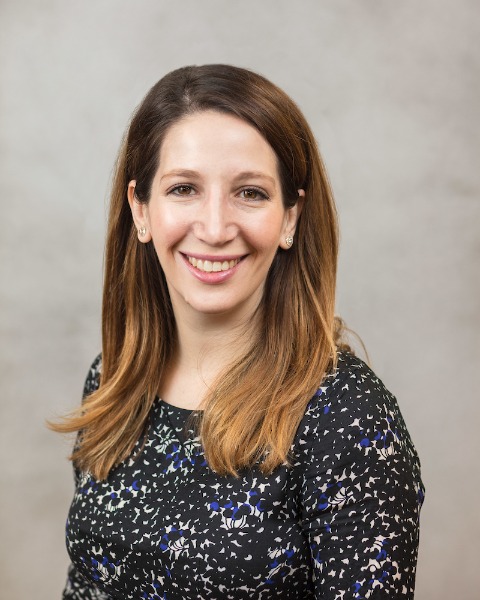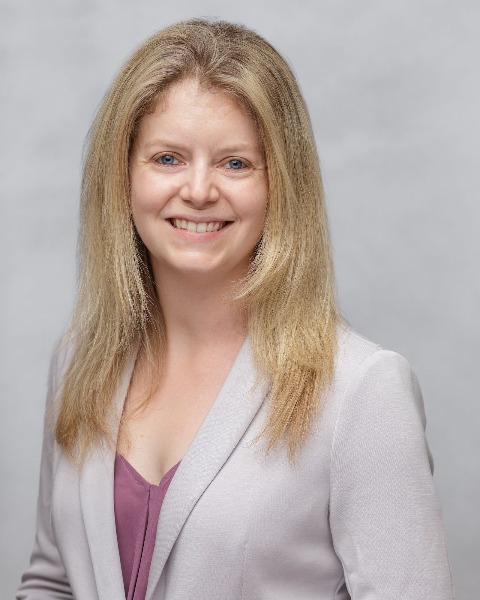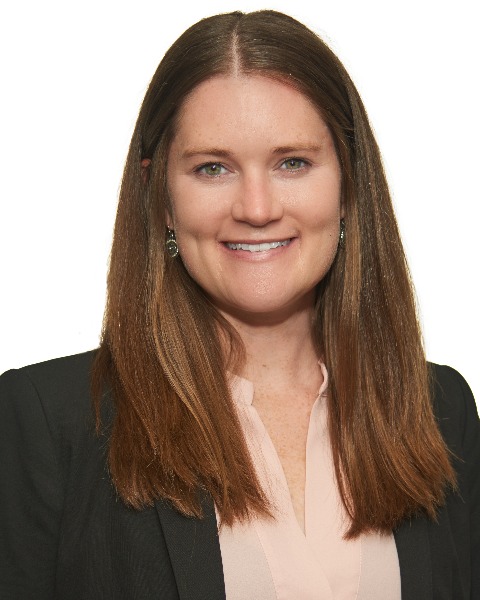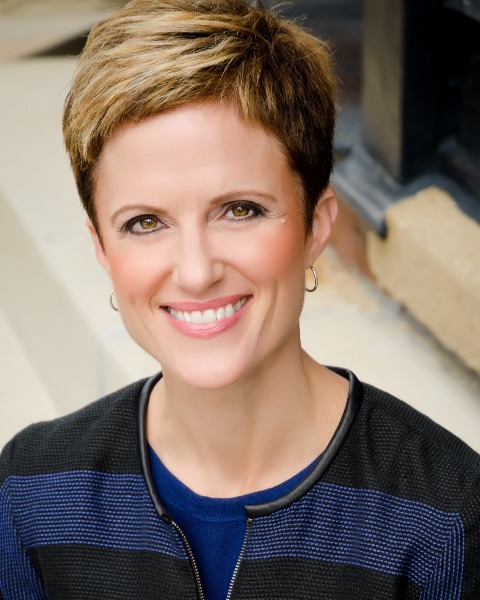
Integrating a Community Methadone Program within a Federally Qualified Health Center
-
Register
- Non-Member - $39
- Regular Member - $29
- Retired - $29
- Early Career Physician - $29
- Resident - $19
- Student - $19
- Associate - $19
- ASAM Staff - Free!
- International Member - $29
- Emeritus Member - $29
- Provisional Member - $29
- Fellow Member - $29
- Honorary Member - $29
- CRT Member - $29

Integrating a Community Methadone Program within a Federally Qualified Health Center
Recorded: Thursday, April 13, 2023 to Sunday, April 16, 2023
On-Demand Session
Overview
This 75-minute on-demand session from the ASAM 54th Annual Conference addresses how to implement an effective integrated interprofessional primary- behavioral health- addictions care program.
This focus session will introduce an innovative OUD management model, including the roles, workflow and partnerships that allow this program to function in an FQHC that serves an underserved BIPOC patient population. The team who developed and currently practice the model from the various agencies will present the program from the design, implementation and outcomes utilizing a power point presentation and handouts with organizational charts, workflows, and patient outcome data from 6-month, 1-year, 18-month, and 2-year follow-up.
The target audience for this intermediate level session includes physicians, nurse practitioners, physician assistants, other clinicians, researchers, residents, fellows, students, and counselors.
This session addresses the following ACGME Competencies: Medical Knowledge, Practice-based Learning and Improvement
This session addresses the following IOM Competencies:Provide patient-centered care, Work in interdisciplinary teams
Learning Objectives
Upon completion, learners will be able to:
- Understand how to implement an effective integrated interprofessional primary- behavioral health- addictions care program
- Identify ways to develop models of collaborative care that integrate and prioritize patients at high risk of overdose including strategies to reduce barriers for patients access to comprehensive health care.
- Define the key elements required to implement a comprehensive coordinated system of care for those OUD patients with multiple co-morbidities, including the impact of co-occurring psychiatric disorders.
Registration Rates
| Rate Description | Rate |
| ASAM Member | $29 |
| Non-Member | $39 |
| Associate Member | $19 |
| Resident Member* | $19 |
| Student Member* | $19 |
*Residents, Fellows-in-training, Interns, and Students must join ASAM to receive a discounted registration rate. Click here to become an ASAM member. National and Chapter membership dues apply. There is no charge for Students to become a Member, but verification of student status is required.
Membership Question? Call ASAM at 1.301.656.3920, email us, or view the ASAM website for more information.
Refunds & Cancellations
All ASAM e-Learning Center refund requests must be made in writing to education@asam.org within 90 days of purchase. Those requesting refunds for courses that are in progress will receive partial refunds or e-Learning Center credit. Automatic full refunds will be made for any course with a live-course component that has been cancelled.
Registration Deadline: 05/15/2026
Session Instructions
- Click on the Contents tab to watch the on-demand recording.
- Click Complete Post Test to answer multiple choice questions. Participants will have 10 attempts to pass and must answer 4 out of 5 questions correctly.
- Click Complete Evaluation to provide valuable activity feedback. Scroll down on all questions as there may be answer options that expand past the size of the window.
- Click the button Claim Medical Credits in the box titled Claim Credits & Certificate. Choose the type of credit and click submit. Click the button View/Print Certificate to save or print your certificate. You can view/print your certificate at any time by visiting the ASAM eLearning Center, clicking Dashboard, and clicking Transcript/Achievements.
Need Assistance?
For assistance logging in, accessing activities, claiming credit, or for other questions or concerns, please check the FAQ page or e-mail Education@ASAM.org
ASAM is proud to offer Essential Accessibility to ensure our website is accessible and functional for all our learners while providing free assistive technology for people with the widest possible range of abilities.

Nicole Gastala, MD
Physician (UI Health/MSHC) and Medical Director (SUPR/IDHS)
UI Health Mile Square Health Center and the Division of Substance Use Prevention and Recovery of the Illinois Department of Human Services
Nicole Gastala, MD is a graduate of Loyola University Stritch School of Medicine in Chicago; she completed her residency at the University of Iowa in family medicine. Dr. Gastala is board certified in family medicine and addiction medicine. She is currently the Director of Behavioral Health and Addiction at Miles Square Health Center, an FQHC affiliated with the University of Illinois Hospital and Health Sciences System in Chicago, Illinois. In January 2021, Dr Gastala joined the Substance Use Prevention and Recovery Division of the Illinois Department of Human Services as the Medical Director.

Christine Neeb, MD, FASAM
Assistant Professor of Clinical Family Medicine
University of Illinois
As a board certified Family Medicine and Addiction Medicine physician, I have dedicated my career to improving health outcomes for vulnerable populations, with a specific focus on Opioid Use Disorder, given the devastating impact this illness has had on the community I serve. After graduating from residency, I practiced in an FQHC in Washington, DC as a National Health Service Corps Scholar, obtained by DATA 2000 X-waiver, and began treating Substance Use Disorders in my clinic as well as several clinics in homeless shelters, including a women’s respite program. When I came back to UIC as faculty, I was able to develop my interests in research and program development through work in numerous projects expanding access to treatment for SUD in some of the most under-resourced areas of Chicago.
Through my role as co-director of the Mile Square Health Center/Family Guidance Opioid Treatment Program (OTP) and director of Stonybrook Center OTP, I am experienced in methadone maintenance treatment, in both the understanding of the medical management and state and federal regulations. My clinical and research focus is in reducing barriers to SUD access, particularly to methadone treatment, in under resourced communities. This work would not be possible without the expertise and support of our experienced team of physicians and researchers at MSHC and UIHealth, who are dedicated to fighting health inequities through the application of evidence based medicine and the creation of strong, sustainable community programs.

Brianna McQuade, PharmD, BCACP, MHPE
Clinical Assistant Professor
University of Illinois Chicago College of Pharmacy
Brianna M. McQuade, PharmD, BCACP, MHPE is a Clinical Assistant Professor at the University of Illinois Chicago (UIC) College of Pharmacy and a clinical pharmacist at Mile Square Health Center in Chicago, IL. Dr. McQuade received her Doctor of Pharmacy from the University of North Carolina at Chapel Hill, completed a Pharmacy Practice PGY1 and Ambulatory Care PGY2 at New Hanover Regional Medical Center in Wilmington, NC, and a two-year pharmacy research fellowship in Academia and Family Medicine at the UIC College of Pharmacy. During her fellowship, she also obtained her Master in Health Professions Education from the UIC College of Medicine Department of Medical Education. Her main practice site is at Mile Square Health Center Family Medicine clinic, a Federally Qualified Health Center, affiliated with UI Health. She specializes in primary care pharmacotherapy for complex underserved populations, including patients with severe mental health and substance use disorder.

Maria Bruni, PhD
Senior Vice-President
Family Guidance Centers, Inc.
Maria Bruni, Ph.D. currently serves as the Senior Vice President for Strategic Partnerships at Family Guidance Centers, Inc. In this role, Maria identifies opportunities to expand existing medication-assisted recovery (MAR) programs for individuals with opioid use disorder (OUD). She launches new initiatives, including mobile MAR units, utilizing federal, state and local grant awards. She develops and leads the implementation of strategic initiatives to leverage emerging technology, innovative reimbursement models, and trends in the field of behavioral health. Before joining FGC, Maria served as a Senior Policy Advisor for the Illinois Department of Healthcare and Family Services, where she worked closely on Medicaid waivers and state plan amendments aimed at expanding and enhancing the services available for Medicaid members with substance use and mental health disorders. Prior to working for HFS, Maria spent over 20 years working for the Illinois Department of Human Services, as the Assistant Secretary for Programs and in multiple roles at the Division of Substance Use Prevention and Recovery (SUPR). At SUPR, Maria was responsible for overseeing the state’s strategic planning process for the substance use disorder (SUD) treatment system of care as well as numerous federally-funded grants. Maria earned an M.A. and Ph.D. from the University of Chicago, School of Social Service Administration.
CME, CE, CEU and Other Credit Types

ACCME Accreditation Statement
The American Society of Addiction Medicine is accredited by the Accreditation Council for Continuing Medical Education (ACCME) to provide continuing medical education for physicians.
AMA Credit Designation Statement
The American Society of Addiction Medicine designates this enduring material for a maximum of 1.25 AMA PRA Category 1 Credits™. Physicians should claim only the credit commensurate with the extent of their participation in the activity.
NAADAC, the Association for Addiction Professionals
This activity has been approved by the American Society of Addiction Medicine, as a NAADAC Approved Education Provider, for educational credits. NAADAC Provider #295, ASAM is responsible for all aspects of the programming.
California Association for Drug/Alcohol Educators (CAADE)
This educational program is approved by CAADE: #CP40 999 1225.
California Association of DUI Treatment Centers (CADTP)
This educational program is approved by CADTP: #205.
California Consortium of Addiction Programs and Professionals (CCAPP)
This educational program is approved by CCAPP: #OS-20-330-1224.
Continuing Education Credits (CEUs)
Non-physician participants will receive a certificate of attendance upon completion of the activity and an online evaluation confirming their participation. Participants should submit his/her certificate of attendance to their professional organization/institute.
Maintenance of Certification / Continuing Certification Program
American Board of Preventive Medicine (ABPM)
The American Board of Preventive Medicine (ABPM) has approved this activity for 1.25 credits towards ABPM MOC Part II requirements.
American Board of Anesthesiology (ABA)
This activity contributes to the CME component of the American Board of Anesthesiology’s redesigned Maintenance of Certification in Anesthesiology TM (MOCA®) program, known as MOCA 2.0®.
American Board of Pediatrics (ABP)
Successful completion of this CME activity, which includes participation in the activity, with individual assessments of the participant and feedback to the participant, enables the participant to earn 1.25 MOC points in the American Board of Pediatrics’ (ABP) Maintenance of Certification (MOC) program. It is the CME activity provider’s responsibility to submit participant completion information to ACCME for the purpose of granting ABP MOC credit.
American Board of Internal Medicine (ABIM)
Successful completion of this CME activity, which includes participation in the evaluation component, enables the participant to earn 1.25 Medical Knowledge MOC points in the American Board of Internal Medicine’s (ABIM) Maintenance of Certification (MOC) program. Participants will earn MOC points equivalent to the amount of CME credits claimed for the activity. It is the CME activity provider’s responsibility to submit participant completion information to ACCME for the purpose of granting ABIM MOC credits.
American Board of Surgery (ABS)
Successful completion of this CME activity, which includes participation in the evaluation component, enables the learner to earn credit toward the CME and/or Self-Assessment requirements of the American Board of Surgery’s Continuous Certification program. It is the CME activity provider's responsibility to submit learner completion information to ACCME for the purpose of granting ABS credit.
American Board of Psychiatry and Neurology (ABPN)
Successful completion of this CME activity can be used to satisfy the American Board of Psychiatry and Neurology’s (ABPN) CME requirement for Maintenance of Certification program.
American Board of Addiction Medicine (ABAM)
Successful completion of this activity can be used to satisfy the American Board of Addiction Medicine (ABAM) for Tmoc as credits towards ABAM LLSA Part II requirements.
Royal College of Physicians and Surgeons of Canada (RCPSC)
Royal College Fellows can use participation in Accredited Continuing Medical Education to earn Section 3 Credits.
Disclosure Information
In accordance with disclosure policies of ASAM and the ACCME, the effort is made to ensure balance, independence, objectivity, and scientific rigor in all CME/CE activities. These policies include mitigating all possible relevant financial relationships with ineligible companies for the Planning Committees and Presenters. All activity Planning Committee members and Presenters have disclosed relevant financial relationship information. The ASAM CE Committee has reviewed these disclosures and determined that the relationships are not inappropriate in the context of their respective presentations and are not inconsistent with the educational goals and integrity of the activity.

